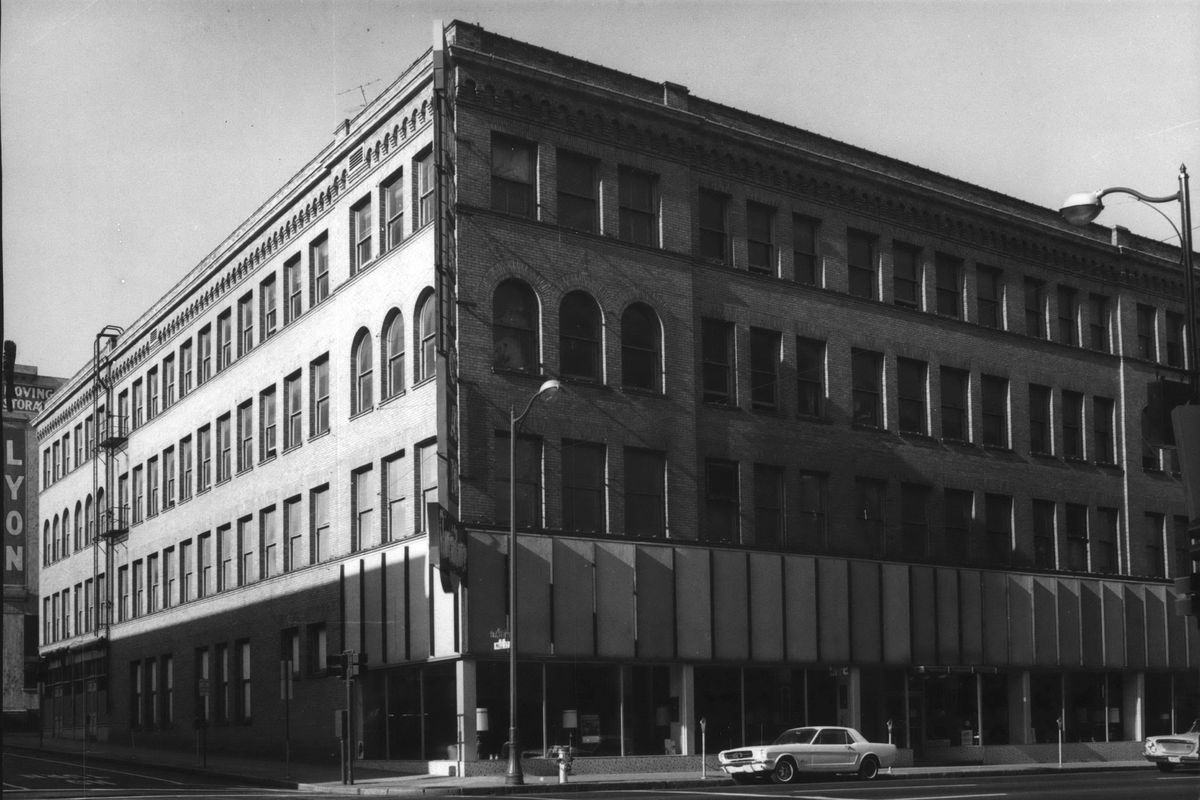Then and Now: Tull and Gibbs furniture

Perry D. Tull, born in 1860 in St. Joseph, Missouri, came to Spokane in the 1880s.
In 1891, he began selling furniture under the name Tulle and Dice. The store’s name changed to Tull and Gibbs in 1899, when he partnered with Frank Gibbs. Gibbs had been the general agent for the Northern Pacific Railroad Company for almost five years before he joined the furniture business.
The pair built one of Spokane’s most successful furniture stores on the northeast corner of First Avenue and Wall Street around 1902.
Housed in a modest four-story block with a large warehouse by the nearby railroad tracks, it became Spokane’s oldest and largest furniture store, promising “practical, economy-priced” furniture.
Gibbs died in 1935. Tull had retired in 1924 to Portland and died in 1945. The store went out of business in 1957, and the building held other furniture retailers for a few years. In 1966, the Farm Credit Administration bought the site for its new building.
The Federal Land Bank, the Federal Intermediate Credit Bank and Spokane Bank for Cooperatives were housed in the building, opening in 1969.
WMFL Architects, led by Bruce Walker and John McGough, designed the impressive cube of stone and glass that symbolized financial security and permanence to its customers, many of them farmers who drove to town to secure seasonal funding for their operations.
Walker and his partners put Spokane on the map with their midcentury modern design. The team created many landmark buildings, including the INB Performing Arts Center, the Thomas S. Foley United States Courthouse and the Avista headquarters building.
Walker, born and raised in Spokane, served in World War II and held degrees from the University of Washington and Harvard. He studied under Walter Gropius, a father of modern architecture. Walker died in 2005.
The farm banks moved next door in 1980 to a larger, Walker-designed tower, which is now the Wells Fargo building.
The 1969 bank was bought by Eastern Washington University in 1982 and used for classes for many years. Pyrotek, a leading manufacturer of equipment for aluminum production and other industries, bought the building in 2012 for its headquarters.